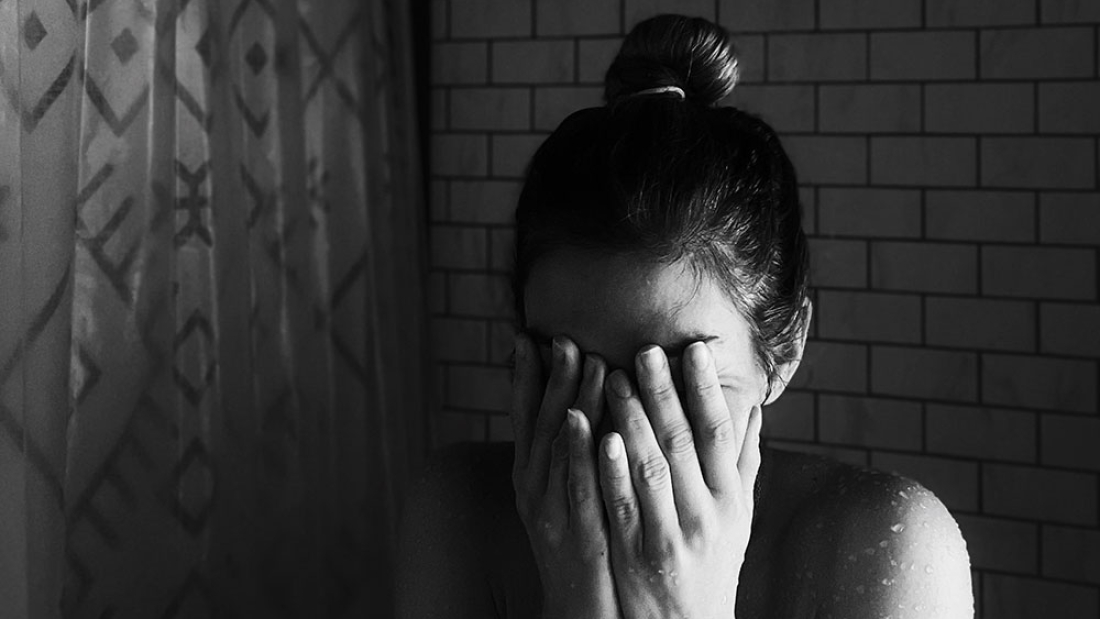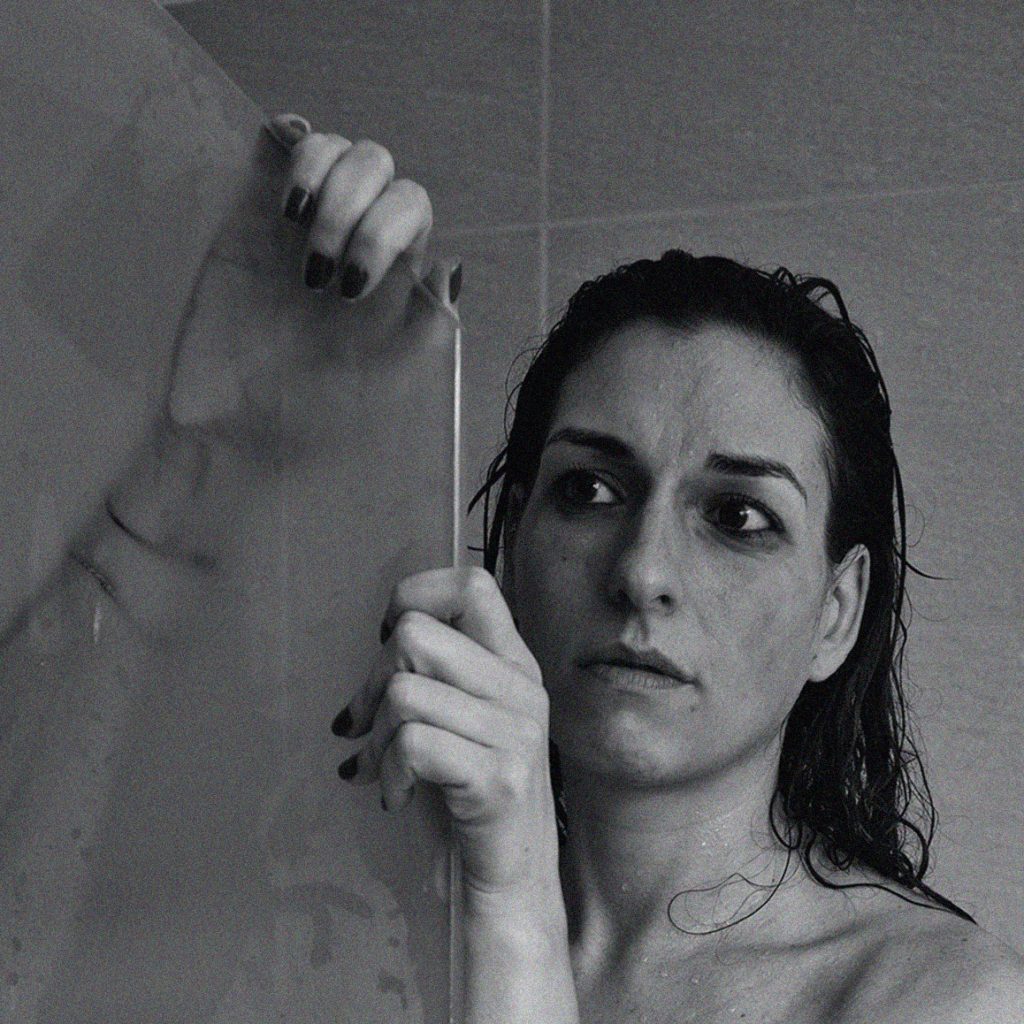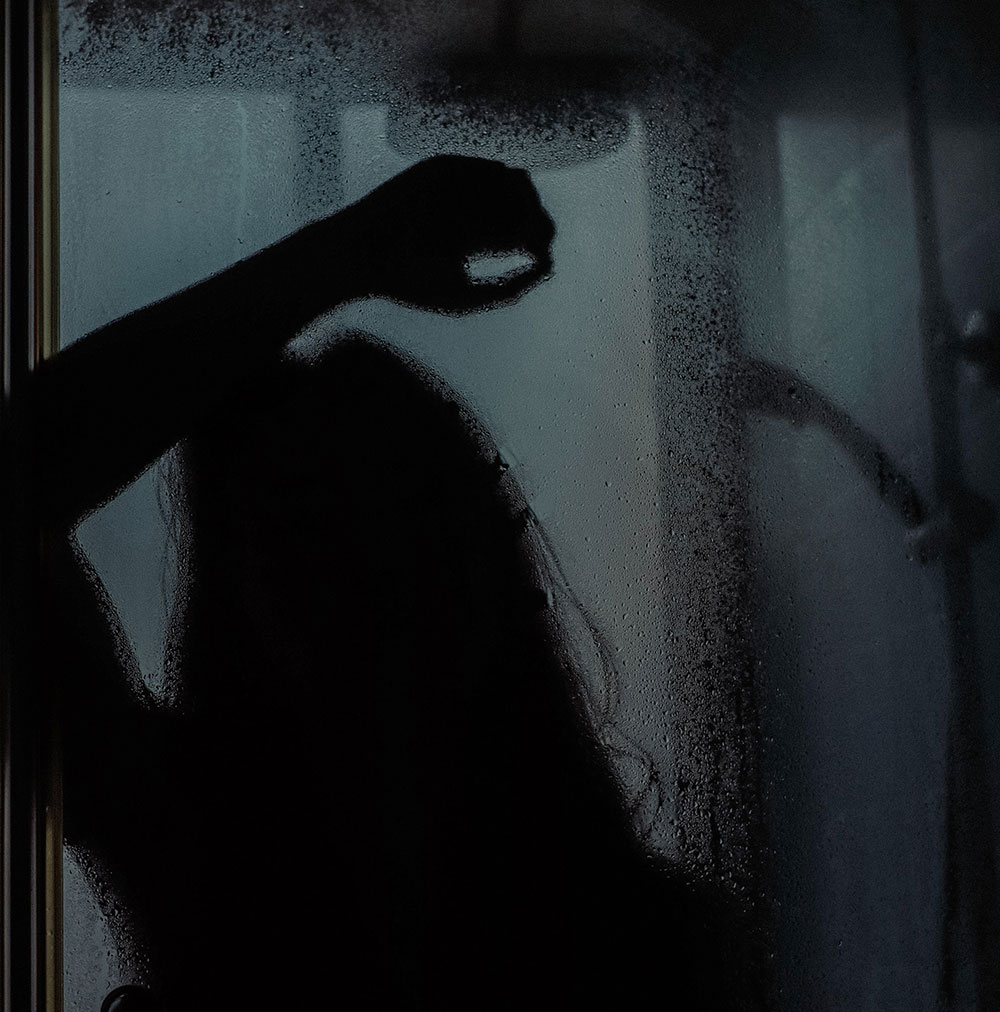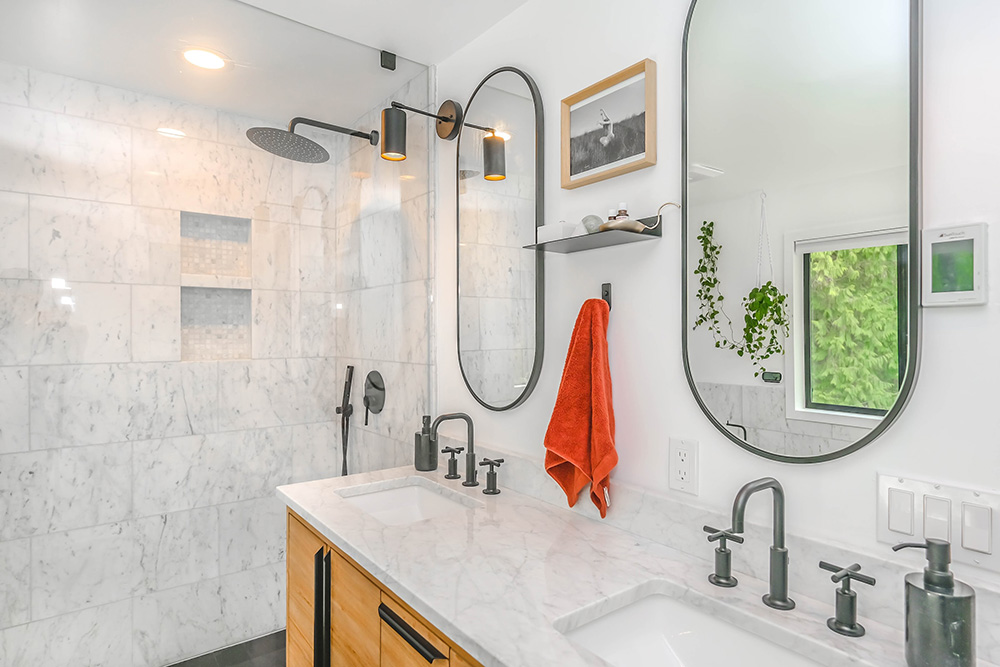In the quest for finding effective remedies for anxiety, an unexpected contender has emerged: the humble shower. The age-old practice of bathing takes a new twist as people explore the potential benefits of cold or warm showers in alleviating anxiety. This intriguing topic has gained traction as individuals seek natural and accessible methods to manage their mental well-being. In this article, we delve into the intriguing question: Can cold or warm showers truly help with anxiety? Join us as we explore the scientific evidence, personal experiences, and potential mechanisms behind the shower therapy phenomenon.
What Is Anxiety?
Anxiety is a common and natural human response to stress or perceived threats. It is characterized by feelings of fear, worry, unease, and apprehension. Anxiety can manifest in various forms, such as generalized anxiety disorder (GAD), panic disorder, social anxiety disorder, or specific phobias. Symptoms may include excessive worrying, restlessness, irritability, difficulty concentrating, muscle tension, and sleep disturbances. While occasional anxiety is normal, persistent and overwhelming anxiety can significantly impact daily life and overall well-being. It is important to seek professional help when anxiety becomes chronic or significantly interferes with daily functioning.
What Are Some Common Symptoms of Anxiety?
Anxiety can manifest through a variety of physical, emotional, and cognitive symptoms. Common symptoms of anxiety include:
- Physical Symptoms:
- Increased heart rate or palpitations
- Shortness of breath or rapid breathing
- Sweating
- Trembling or shaking
- Muscle tension or aches
- Fatigue or low energy
- Gastrointestinal issues (such as stomachaches, nausea, or diarrhea)
- Headaches or migraines
- Emotional Symptoms:
- Excessive worry or fear
- Restlessness or feeling on edge
- Irritability or easily becoming agitated
- Difficulty concentrating or focusing
- Feeling overwhelmed
- Trouble with decision-making
- Persistent feelings of apprehension or impending doom
- Changes in mood, such as feeling tense, irritable, or sad
- Cognitive Symptoms:
- Racing thoughts
- Intrusive or obsessive thoughts
- Catastrophic thinking or expecting the worst
- Difficulty controlling worries
- Feeling mentally “stuck” or unable to relax
- Difficulty sleeping or experiencing frequent nightmares
It’s important to note that everyone may experience anxiety differently, and the severity and combination of symptoms can vary from person to person. Consulting with a healthcare professional can help in accurately diagnosing and managing anxiety.
What Causes Anxiety?
The causes of anxiety are multifaceted and can vary from person to person. Some common factors that can contribute to the development of anxiety include:
- Biological Factors: Imbalances in brain chemistry, genetics, and family history of anxiety disorders can increase the likelihood of developing anxiety.
- Environmental Factors: Experiencing stressful or traumatic events, such as abuse, accidents, or the loss of a loved one, can trigger anxiety. Chronic stress from work, relationships, or financial difficulties can also contribute.
- Personality Traits: Individuals with certain personality traits, such as perfectionism, low self-esteem, or a tendency to overthink, may be more prone to developing anxiety.
- Medical Conditions: Certain medical conditions, such as chronic illnesses, hormonal imbalances, or chronic pain, can contribute to the development or exacerbation of anxiety symptoms.
- Substance Use or Withdrawal: Substance abuse or withdrawal from drugs and alcohol can lead to anxiety symptoms.
- Neurochemical Imbalances: Disruptions in neurotransmitters (chemical messengers in the brain) like serotonin, dopamine, or GABA can influence anxiety levels.
It’s important to note that anxiety disorders can have complex and interrelated causes. Often, a combination of these factors contributes to the development of anxiety. Understanding the underlying causes can help individuals and healthcare professionals in developing effective strategies for managing and treating anxiety.
How Is Anxiety Treated?
Anxiety can be effectively managed and treated through a combination of approaches. The most common treatment options for anxiety include:
- Psychotherapy: Therapy, such as cognitive-behavioral therapy (CBT), is a widely used approach for treating anxiety. It helps individuals identify and modify negative thought patterns and behaviors that contribute to anxiety. Other types of therapy, such as exposure therapy or mindfulness-based therapies, may also be beneficial.
- Medications: Certain medications, such as selective serotonin reuptake inhibitors (SSRIs) or benzodiazepines, may be prescribed to help alleviate anxiety symptoms. These medications work by regulating brain chemistry and reducing anxiety levels. It’s important to consult with a healthcare professional for proper evaluation and prescription.
- Lifestyle Changes: Adopting healthy lifestyle habits can support anxiety management. Regular exercise, a balanced diet, adequate sleep, and stress-reduction techniques (like meditation or deep breathing exercises) can all contribute to reducing anxiety levels.
- Relaxation Techniques: Practices like deep breathing exercises, progressive muscle relaxation, or yoga can help calm the body and mind, reducing anxiety symptoms.
- Support Networks: Building a support system of understanding friends, family, or support groups can provide emotional support and help individuals cope with anxiety.
- Stress Management: Learning effective stress management techniques, such as time management, setting boundaries, and prioritizing self-care, can help reduce anxiety triggers.
- Complementary and Alternative Approaches: Some individuals find relief from anxiety through complementary therapies like acupuncture, herbal supplements, or aromatherapy. It’s important to consult with a healthcare professional before trying these approaches.
Treatment for anxiety is highly individualized, and what works for one person may not work for another. It’s crucial to work closely with a qualified healthcare professional to develop a personalized treatment plan that addresses specific needs and circumstances.
Why Cold Showers?
Cold showers have gained attention for their potential benefits in various aspects of health and well-being, including anxiety management. Here are some reasons why cold showers are believed to be beneficial:
- Activation of the Body’s Stress Response: Cold showers can trigger a physiological response known as the cold shock response. This response activates the sympathetic nervous system, leading to the release of norepinephrine, a neurotransmitter that helps regulate mood and attention. This activation may have an anti-anxiety effect and promote a sense of alertness and mental clarity.
- Increased Circulation and Endorphin Release: Cold water exposure stimulates blood flow and can constrict blood vessels. This can improve circulation, enhance oxygen and nutrient delivery to the brain, and potentially increase the release of endorphins, which are natural mood-boosting chemicals.
- Calming Effect on the Nervous System: Cold showers may help calm the autonomic nervous system, which regulates the body’s stress response. Cold water can induce a relaxation response and reduce the activation of the sympathetic nervous system, resulting in a sense of calm and reduced anxiety.
- Exposure Therapy and Resilience Building: Taking cold showers involves intentionally exposing oneself to discomfort or stress. This practice can be seen as a form of exposure therapy, gradually desensitizing individuals to stressful situations and building resilience. Over time, this increased tolerance for discomfort may translate into improved ability to cope with anxiety-inducing situations.
- Mood Enhancement and Energy Boost: Cold showers are known to invigorate and energize the body. The shock of cold water can provide a natural boost to mood, increase alertness, and alleviate symptoms of fatigue, which can indirectly contribute to anxiety reduction.
It’s important to note that while cold showers may have potential benefits, they might not be suitable for everyone, particularly those with certain medical conditions or sensitivities. As with any health practice, it’s advisable to consult with a healthcare professional before incorporating cold showers into your routine, especially if you have any underlying health concerns.
Do Cold Showers Work for Anxiety?
The effectiveness of cold showers as a standalone treatment for anxiety is not yet definitively established in scientific research. While some individuals may find temporary relief or improved mood from cold showers, it is important to approach their potential benefits with caution and consider them as part of a broader anxiety management plan.
Cold showers can provide a brief physiological response that may help promote alertness and temporarily reduce anxiety symptoms. However, anxiety is a complex condition influenced by various factors, and its treatment often requires a multifaceted approach. Psychotherapy, medication, lifestyle changes, and stress management techniques are typically more widely recognized and evidence-based strategies for managing anxiety.
If you are considering using cold showers as part of your anxiety management routine, it is advisable to consult with a healthcare professional or therapist who can provide personalized guidance based on your specific situation. They can help determine whether cold showers may be a suitable addition to your overall anxiety management plan or suggest other evidence-based interventions that may be more effective for your needs.
What Are the Benefits?
While the specific effectiveness of cold showers for anxiety is not yet fully established, cold showers are believed to offer several potential benefits for overall health and well-being. Some of these benefits include:
- Increased Alertness and Energy: Cold water exposure can provide an invigorating effect, promoting wakefulness, alertness, and increased energy levels.
- Improved Circulation: Cold showers can stimulate blood flow and cause vasoconstriction (narrowing of blood vessels), which may enhance circulation throughout the body.
- Enhanced Recovery and Muscle Relief: Cold showers can help reduce inflammation and muscle soreness, making them popular among athletes for post-workout recovery.
- Improved Skin and Hair Health: Cold water can tighten pores, improve skin tone, and promote healthy hair by reducing oiliness and increasing shine.
- Strengthened Immune System: Cold showers may help stimulate the production of white blood cells, which are essential for a robust immune response.
- Increased Resilience to Cold: Regular exposure to cold water may help improve tolerance to cold temperatures, potentially making individuals more resilient to extreme weather conditions.
It’s important to note that the benefits of cold showers can vary from person to person, and individual experiences may differ. Additionally, it’s always advisable to consider personal comfort levels and any underlying medical conditions before incorporating cold showers into your routine. If you have specific health concerns, it’s best to consult with a healthcare professional for personalized advice.
What Are the Risks?
While cold showers can offer certain benefits, it’s essential to consider potential risks and limitations. Here are some factors to be aware of:
- Discomfort and Sensitivity: Cold showers can be uncomfortable, especially for those who are not accustomed to cold water exposure. Individuals with sensitivity to cold temperatures or certain medical conditions, such as Raynaud’s disease, may find cold showers particularly challenging and potentially exacerbate their symptoms.
- Risk of Hypothermia: Prolonged exposure to very cold water can lead to hypothermia, a dangerous condition in which body temperature drops to dangerously low levels. It’s crucial to ensure that the water temperature is safe and that exposure time is limited.
- Increased Anxiety for Some Individuals: While cold showers may have potential benefits for anxiety management in some people, others may find the experience too stressful or triggering, leading to an increase in anxiety symptoms. It’s important to listen to your body and consider individual preferences and comfort levels.
- Circulatory Issues: Individuals with certain circulatory conditions, such as peripheral artery disease, may experience complications or discomfort with cold water exposure due to the narrowing of blood vessels.
- Risk of Falls: Cold showers can make the floor and surfaces slippery, increasing the risk of falls and injuries. It’s essential to take necessary precautions to ensure bathroom safety, such as using non-slip mats or handles.
- Individual Variations: The response to cold showers can vary greatly from person to person. What works for one individual may not have the same effect on another. It’s important to consider personal comfort, medical history, and any pre-existing conditions before incorporating cold showers into your routine.
As with any health-related practice, it’s advisable to consult with a healthcare professional before making significant changes, especially if you have underlying health concerns or specific medical conditions. They can provide personalized advice based on your individual circumstances and help you determine if cold showers are suitable for you.
What About Warm Showers?
Warm showers also offer their own set of benefits and considerations. Here are some key points regarding warm showers:
- Relaxation and Stress Reduction: Warm water can help promote relaxation, relieve muscle tension, and soothe the body and mind. Taking a warm shower can create a calming effect and may help reduce stress and anxiety levels.
- Improved Sleep Quality: A warm shower before bedtime can aid in improving sleep quality. The rise and subsequent drop in body temperature after a warm shower can signal the body to prepare for sleep, promoting a more restful night.
- Muscle Relaxation and Pain Relief: Warm water can help relax muscles, increase blood flow, and provide temporary relief from muscle soreness, stiffness, and joint pain.
- Skin Cleansing and Hydration: Warm showers can assist in removing dirt, oils, and bacteria from the skin, promoting cleanliness. However, hot water can also strip the skin of natural oils, so it’s important to find a balance and avoid excessively hot water that can lead to dryness.
- Respiratory Benefits: The steam generated by warm showers can help moisturize and soothe the respiratory passages, potentially providing relief for congestion, allergies, or respiratory conditions.
- Comfort and Personal Preference: For many individuals, warm showers are simply more enjoyable and comfortable than cold showers. Personal preference plays a significant role in determining the choice of water temperature during bathing.
It’s important to note that warm showers, like cold showers, may not be suitable for everyone. Individuals with certain medical conditions, such as heat sensitivity, skin conditions, or cardiovascular issues, should exercise caution and consult with a healthcare professional for personalized advice.
Ultimately, whether you choose warm showers or cold showers depends on your preferences, comfort levels, and any specific health considerations. It’s essential to listen to your body and adapt your shower routine to what works best for you.
How Else Can I Calm My Anxiety?
In addition to considering cold or warm showers as a potential anxiety management tool, there are several other strategies you can try to calm anxiety. Here are some effective techniques:
- Deep Breathing Exercises: Practice deep breathing techniques, such as diaphragmatic breathing or box breathing, to activate the body’s relaxation response and reduce anxiety.
- Mindfulness and Meditation: Engage in mindfulness meditation or other relaxation techniques to cultivate present-moment awareness, reduce racing thoughts, and promote a sense of calm.
- Regular Exercise: Engage in regular physical activity, as it can help reduce anxiety and improve overall well-being. Choose activities you enjoy, such as walking, yoga, or dancing.
- Prioritize Self-Care: Take time for self-care activities that promote relaxation and stress reduction. This can include activities like reading, taking a bath, engaging in hobbies, or spending time in nature.
- Establish a Routine: Establishing a structured routine can provide a sense of stability and reduce anxiety related to uncertainty. Plan your daily activities, prioritize tasks, and ensure you have adequate rest and relaxation time.
- Cognitive-Behavioral Techniques: Learn and practice cognitive-behavioral techniques to challenge negative thoughts and reframe anxious thinking patterns. This can help in managing and reducing anxiety symptoms.
- Social Support: Reach out to trusted friends, family, or support groups for emotional support and understanding. Sharing your feelings with others can provide relief and help you feel less alone.
- Limit Stressors: Identify and manage sources of stress in your life. Set healthy boundaries, delegate tasks, and practice effective time management to reduce overwhelming stress levels.
- Get Sufficient Sleep: Prioritize quality sleep by maintaining a consistent sleep schedule, creating a relaxing bedtime routine, and ensuring a comfortable sleep environment.
- Seek Professional Help: If anxiety becomes chronic, significantly interferes with your daily life, or causes significant distress, consider seeking professional help from a therapist or counselor who can provide guidance and evidence-based treatments.
Remember, everyone’s experience with anxiety is unique, so it may take some trial and error to find the strategies that work best for you. It’s important to be patient, kind to yourself, and seek professional help if needed.
The Bottom Line
The question of whether cold or warm showers can help with anxiety remains an ongoing topic of interest and exploration. While some individuals may find temporary relief or positive effects on their mood and well-being from cold or warm showers, it’s important to approach their potential benefits with caution.
Anxiety is a complex condition influenced by various factors, and its management typically requires a comprehensive approach involving therapy, medication, lifestyle changes, and stress management techniques. Cold showers may offer brief physiological responses, such as increased alertness and circulation, while warm showers can promote relaxation and stress reduction.
However, it is crucial to consider individual comfort levels, preferences, and any underlying medical conditions before incorporating cold or warm showers into an anxiety management routine. It’s advisable to consult with a healthcare professional or therapist who can provide personalized guidance and determine whether cold or warm showers may be suitable additions to an individual’s overall anxiety management plan.
Ultimately, finding effective strategies to manage anxiety involves a holistic approach that considers individual needs and preferences. Incorporating various evidence-based techniques, such as therapy, relaxation exercises, regular exercise, and self-care, can contribute to better overall well-being and anxiety management.
Brought to you by Fomat Medical




